Oxidation without clevage of sigma bond takes place in alkenes.

Presence of unsaturation in alkenes is detected by using Baeyer's reagent. Alkenes decolourise pink colour of Baeyer's reagent. In presence of Baeyer's reagent, 'syn' addition of -OH groups takes place on both carbons of double bond. The net reaction can be given as,
R−CH=CH−RKMnO4−−−−→OH−R−OH∣CH−OH∣CH−R
Ozonolysis of alkenes gives ozonide, which on further hydrolysis gives aldehyde and/ or ketone.
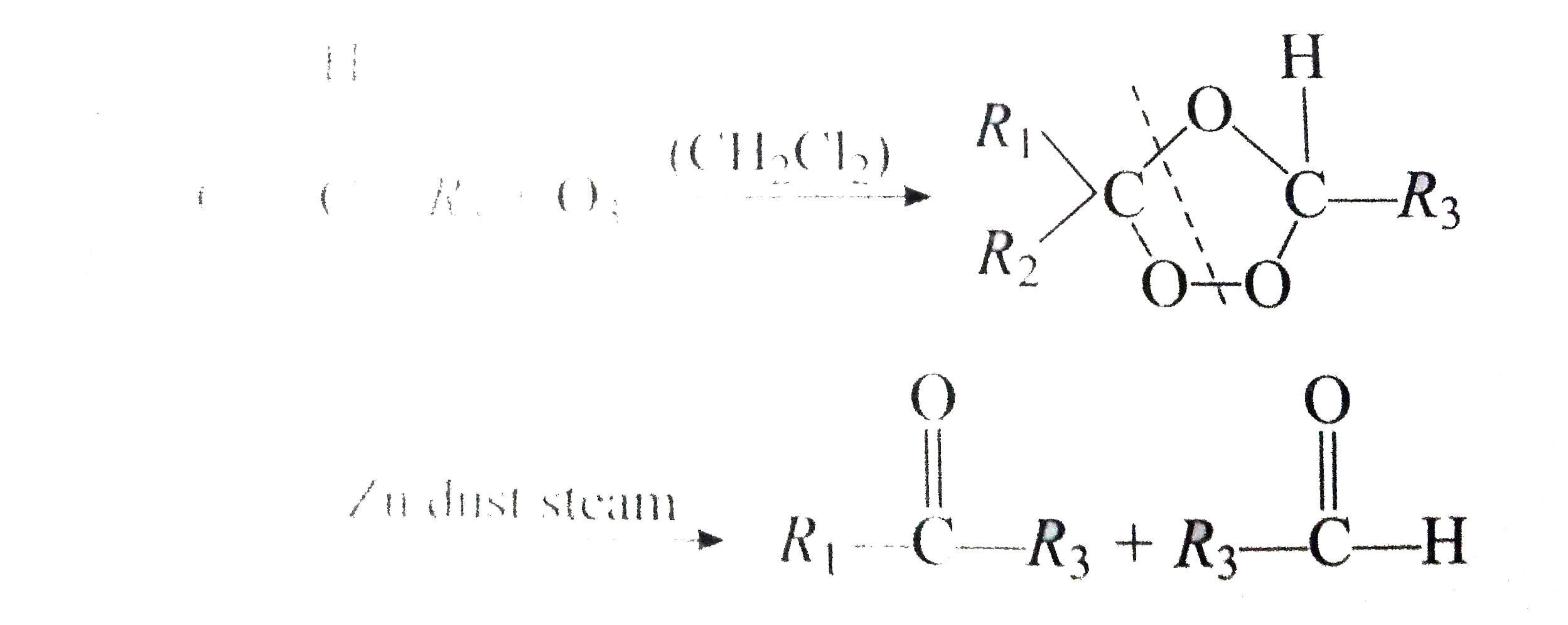
Which of these compounds give glyoxal only on ozonolysis?
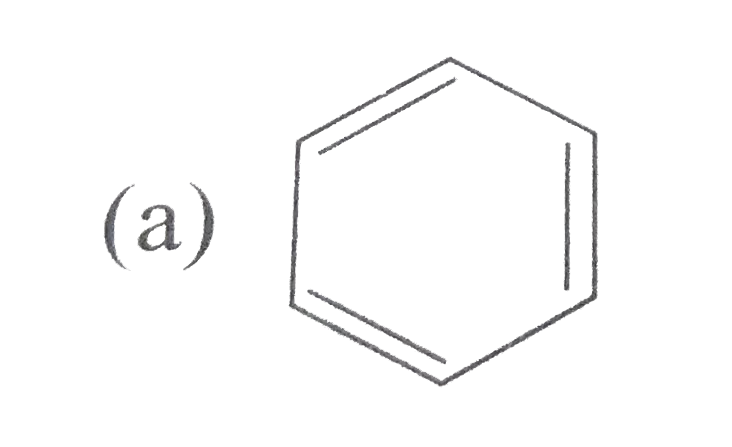
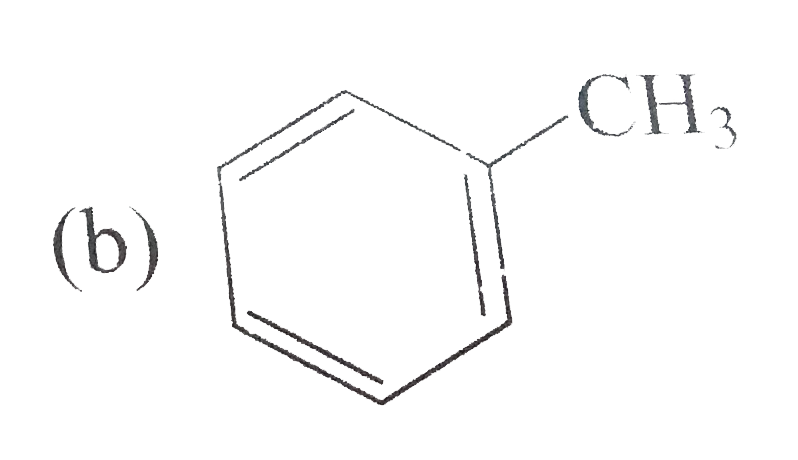
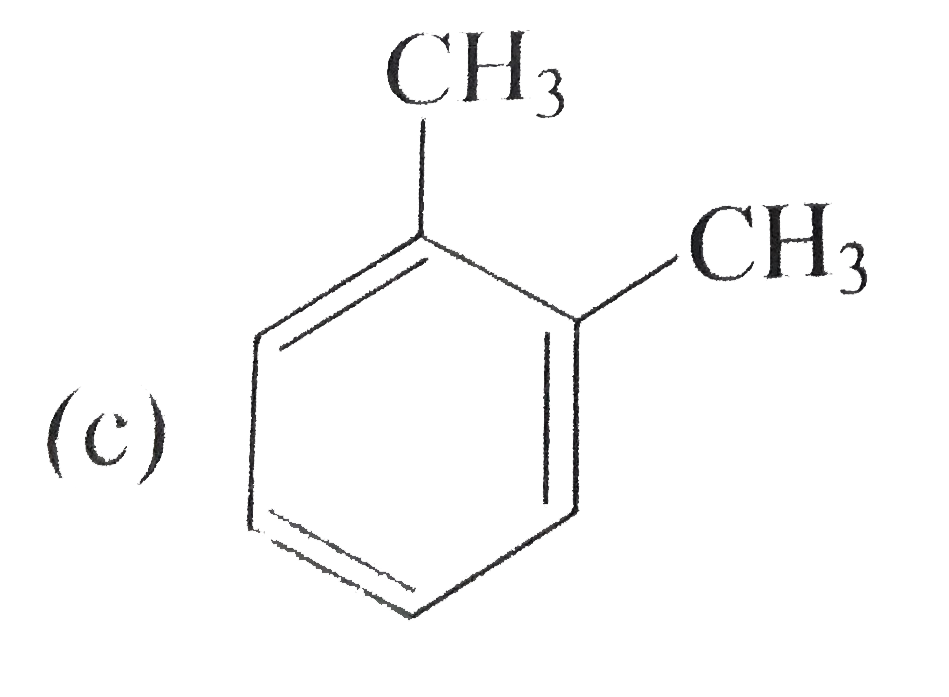
All of these
The correct Answer is:A
Step by step video, text & image solution for Oxidation without clevage of sigma bond takes place in alkenes. Presence of unsaturation in alkenes is detected by using Baeyer's reagent. Alkenes decolourise pink colour of Baeyer's reagent. In presence of Baeyer's reagent, 'syn' addition of -OH groups takes place on both carbons of double bond. The net reaction can be given as, R-CH=CH-R overset(KMnO_(4))underset(OH^(-))to R-overset(OH)overset(|)(CH)-overset(OH)overset(|)(CH)-R Ozonolysis of alkenes gives ozonide, which on further hydrolysis gives aldehyde and/ or ketone. Which of these compounds give glyoxal only on ozonolysis? by Chemistry experts to help you in doubts & scoring excellent marks in Class 12 exams.
Updated on:21/07/2023Topper's Solved these Questions
- UNSATURATED HYDROCARBONSBook:OP TANDONChapter:UNSATURATED HYDROCARBONSExercise:SINGLE INTEGER ANSWER TYPE QUESTIONS
Explore 10 Videos
- UNSATURATED HYDROCARBONSBook:OP TANDONChapter:UNSATURATED HYDROCARBONSExercise:MATRIX MATCH TYPE QUESTIONS:
Explore 6 Videos
- STOICHIOMETRY (CHEMICAL FORMULAE AND EQUATIONS )Book:OP TANDONChapter:STOICHIOMETRY (CHEMICAL FORMULAE AND EQUATIONS )Exercise:SELF ASSESSMENT
Explore 11 Videos
Similar Questions
CH3−CH∣CH3−CH=CH−CH2−O∣∣C−OH
View SolutionOxidation without clevage of sigma bond takes place in alkenes.

Presence of unsaturation in alkenes is detected by using Baeyer's reagent. Alkenes decolourise pink colour of Baeyer's reagent. In presence of Baeyer's reagent, 'syn' addition of -OH groups takes place on both carbons of double bond. The net reaction can be given as,
R−CH=CH−RKMnO4−−−−→OH−R−OH∣CH−OH∣CH−R
Ozonolysis of alkenes gives ozonide, which on further hydrolysis gives aldehyde and/ or ketone.
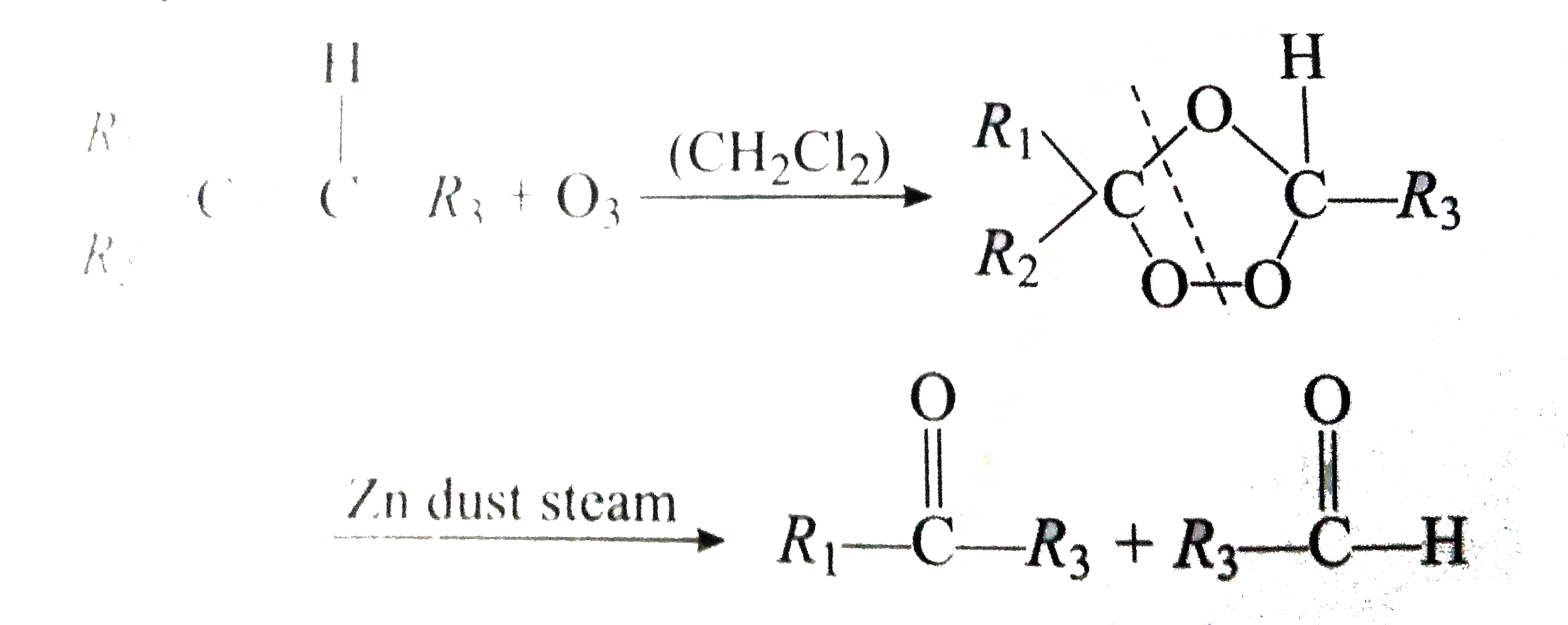
Answer the following questions:
Liner polyenes on ozonolysis gives two moles of acetaldeyde and one mole of propanedial. Linear polyene will be:
View Solution
Knowledge Check
Oxidation without clevage of sigma bond takes place in alkenes.

Presence of unsaturation in alkenes is detected by using Baeyer's reagent. Alkenes decolourise pink colour of Baeyer's reagent. In presence of Baeyer's reagent, 'syn' addition of -OH groups takes place on both carbons of double bond. The net reaction can be given as,
R−CH=CH−RKMnO4−−−−→OH−R−OH∣CH−OH∣CH−R
Ozonolysis of alkenes gives ozonide, which on further hydrolysis gives aldehyde and/ or ketone.
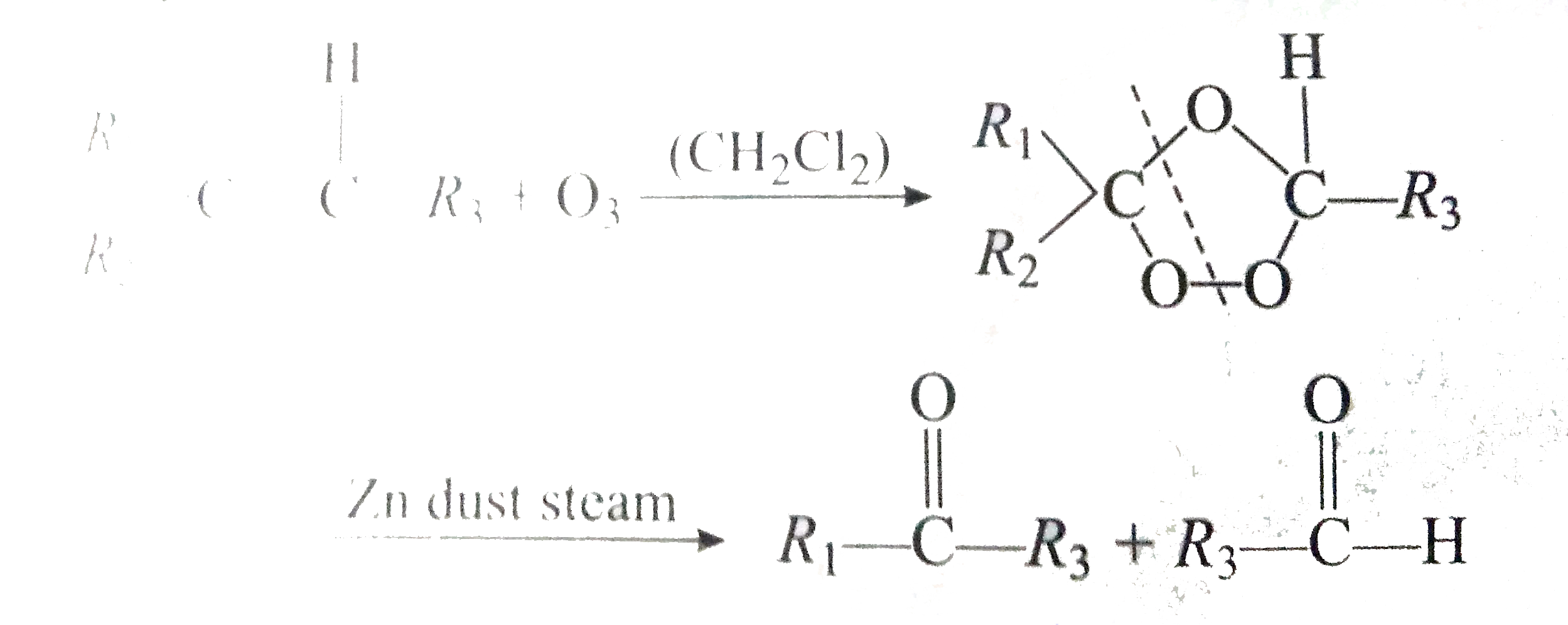
Which of the following will give only formaldehyde on ozonolysis?AH2C=CH2BCH3−CH=CH2CCH3−CH=CH−CH3D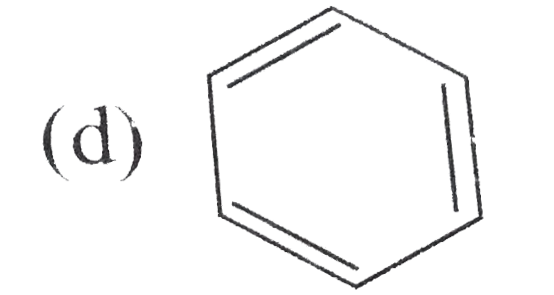
Oxidation without clevage of sigma bond takes place in alkenes.

Presence of unsaturation in alkenes is detected by using Baeyer's reagent. Alkenes decolourise pink colour of Baeyer's reagent. In presence of Baeyer's reagent, 'syn' addition of -OH groups takes place on both carbons of double bond. The net reaction can be given as,
R−CH=CH−RKMnO4−−−−→OH−R−OH∣CH−OH∣CH−R
Ozonolysis of alkenes gives ozonide, which on further hydrolysis gives aldehyde and/ or ketone.
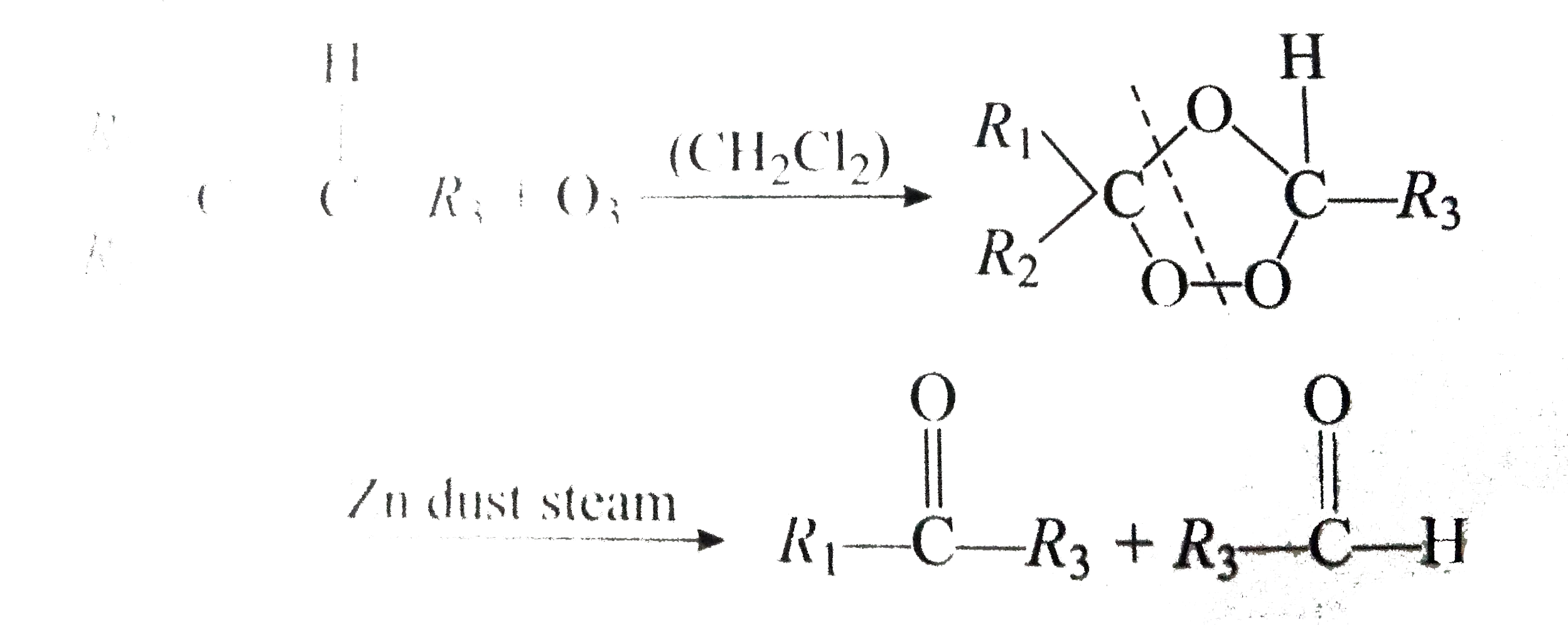
Product of ozonolysis gives information about:AconfigurationBconformationCboth of theseDnone of theseOxidation without clevage of sigma bond takes place in alkenes.

Presence of unsaturation in alkenes is detected by using Baeyer's reagent. Alkenes decolourise pink colour of Baeyer's reagent. In presence of Baeyer's reagent, 'syn' addition of -OH groups takes place on both carbons of double bond. The net reaction can be given as,
R−CH=CH−RKMnO4−−−−→OH−R−OH∣CH−OH∣CH−R
Ozonolysis of alkenes gives ozonide, which on further hydrolysis gives aldehyde and/ or ketone.
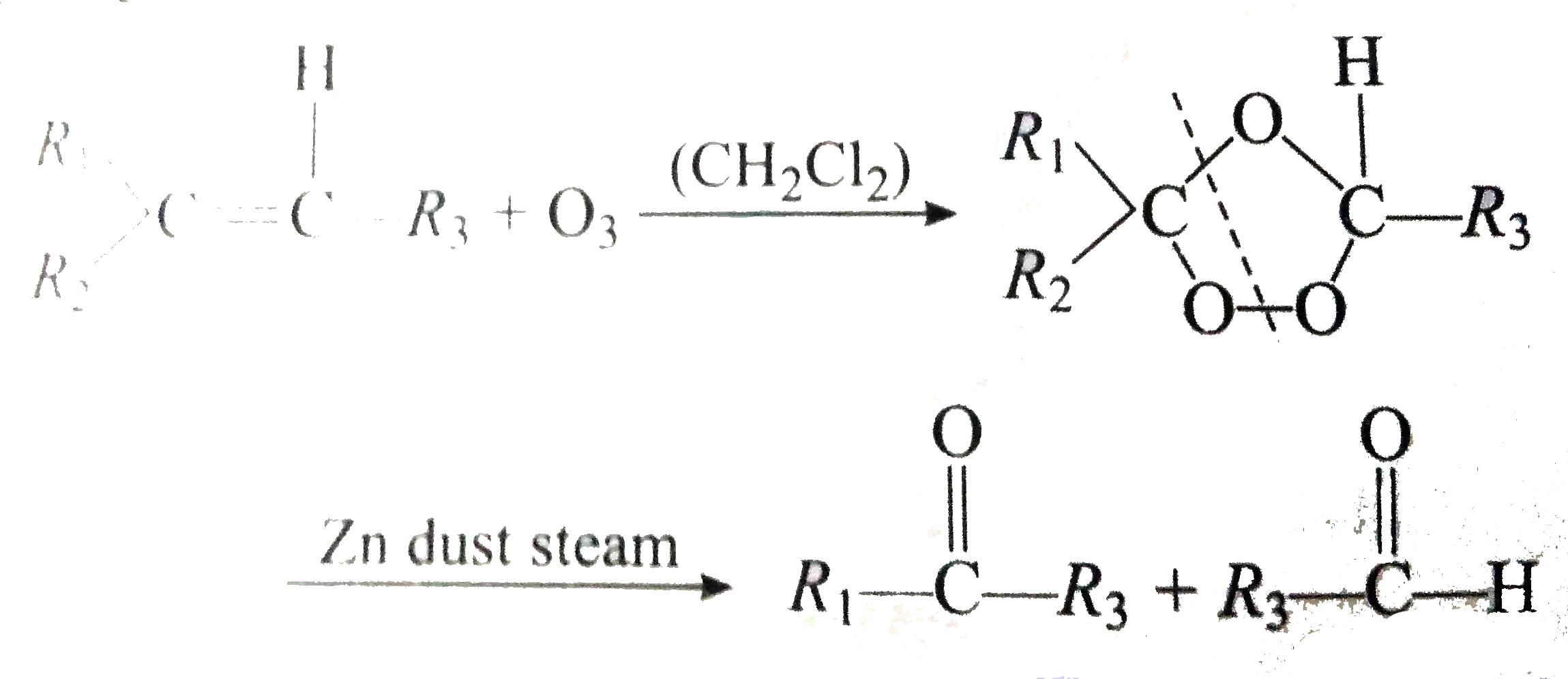
ortho Xylene on reductive ozonolysis will be:ACHO−CHO and CH3−O∣∣C−CHOBCH3−O∣∣C−O∣∣C−CH3 and CH3−O∣∣C−CHOCCH3−O∣∣C−O∣∣C−CH3 and CHO−CHODCH3−O∣∣C−O∣∣C−CH3 nad CH3−O∣∣C−CHO and CHO−CHO
Decolourisation of baeyer's reagent indicates the presence of
View SolutionThe number of meso form of the given compound (A) is
CH3−OH∣CH−OH∣CH−OH∣CH−CH3
View SolutionR−O∣∣C−O−Hx−−→R−CH2−OH
X can be
View SolutionCH3−OH∣CH−O∣∣C−CH2−CH3 will respond to
View SolutionThe IUPAC name of CH3−OH∣C∣CH3−CH2−OH∣CH−CH3 is
View Solution

